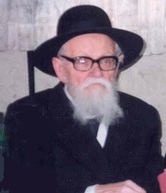| One of the paramount values of Jewish tradition is the embrace of life. The rabbis read a verse in Torah that says, "You shall keep My laws and My rules, so that by doing them a person shall live," (Leviticus 18:5) and conclude that the Torah and all the laws of our tradition are intended to promote life. It is only in rare and extreme circumstances that the rabbis say a person should put a life at risk to observe the laws of the Torah. |
Of course, this is an issue that is in the news this week, especially with regard to abortion following a rape. After the inflammatory statements by Rep. Todd Akin, the Republican Senate candidate in Missouri, many Jews may be wondering what our tradition allows in such tragic circumstances.
Not every pregnancy is a reason for joy. From the time of the early rabbis, our tradition has recognized that there are situations in which a pregnancy is a threat to the life of the mother. In those circumstances, the tradition actually demands that the fetus be aborted to save the mother.
If a woman is in hard labor, one chops up the child in her womb and removes it limb by limb, because the mother's life takes precedence over the child's life. However, if the greater part of the birth has gone forth, they do not touch the child, for they do not set aside one life on account of another life. (Mishnah Oholot 7:6)
Judaism does not endorse, and never has endorsed, the idea that an unborn fetus is life of equal status to the mother, or to any person who already has been born. The fetus is referred to in traditional Jewish texts as a "partial nefesh," that is, a being that is on its way to becoming a full life, but is not yet at that point. A person does not become a full nefesh until "the greater part of birth," often defined as the point at which the head and one shoulder emerge from the mother.
There is greater difficulty in Jewish tradition to understand what may be done in situations where the pregnancy does not threaten to kill the mother, but still poses a threat to her wellbeing. At least one 20th century Orthodox authority has attempted to address this question in a systematic way.
Rabbi Eliezer Waldenberg was a member of Israel's Supreme Rabbinical Court and a highly respected authority of Jewish law, especially laws related to medical ethics. He wrote in his enormous collection of legal rulings, Tzitz Eliezer, that there is a legal basis for permitting some abortions when non-lethal harm would be caused by birth. He includes in this category the situation of a pregnant mother who is still nursing, a pregnancy that results from adultery, and a pregnancy that results from rape.
As one might expect, Reform Judaism goes much further in permitting abortions. In 1967 (well before the U.S. Supreme Court ruled in Roe vs. Wade), the Central Conference of American Rabbis (CCAR) called for "religiously valid and humane" legislation that would legalize entirely abortions in these circumstances. The Reform rabbinical association called for law that:
Recognizes the preservation of a mother's emotional health to be as important as her physical well-being; and properly considers the danger of anticipated physical or mental damage; and permits abortion in pregnancies resulting from sexual crime including rape, statutory rape, and incest.
There is no suggestion in Jewish law that there is a physiological or miraculous protection from pregnancy for a woman who is the victim of rape. The tradition is realistic in recognizing that pregnancy is the result of sexual intercourse, consensual or nonconsensual, and has nothing to do with the "purity" or "legitimacy" of the act.
That is also the position of medical experts. The American College of Obstetricians and Gynecologists stated this week, "Each year in the U.S., 10,000 to 15,000 abortions occur among women whose pregnancies are a result of reported rape or incest." The group went on to state that there is an "unknown number" of such pregnancies that are carried to term.
Regarding the reality of rape, the medical group puts it bluntly:
Any person forced to submit to sexual intercourse against his or her will is the victim of rape, a heinous crime. There are no varying degrees of rape. To suggest otherwise is inaccurate and insulting and minimizes the serious physical and psychological repercussions for all victims of rape.
Judaism embraces life, celebrates life, and is joyful in the prospect of new life. Yet, within the tradition there also is the realization that life is not joyful when a pregnancy threatens a woman's wellbeing or when an act of violence robs her of the ability to choose how to bring new life into the world. In those tragic circumstances, traditional Jewish law allows for a potential life to be ended.


 RSS Feed
RSS Feed
